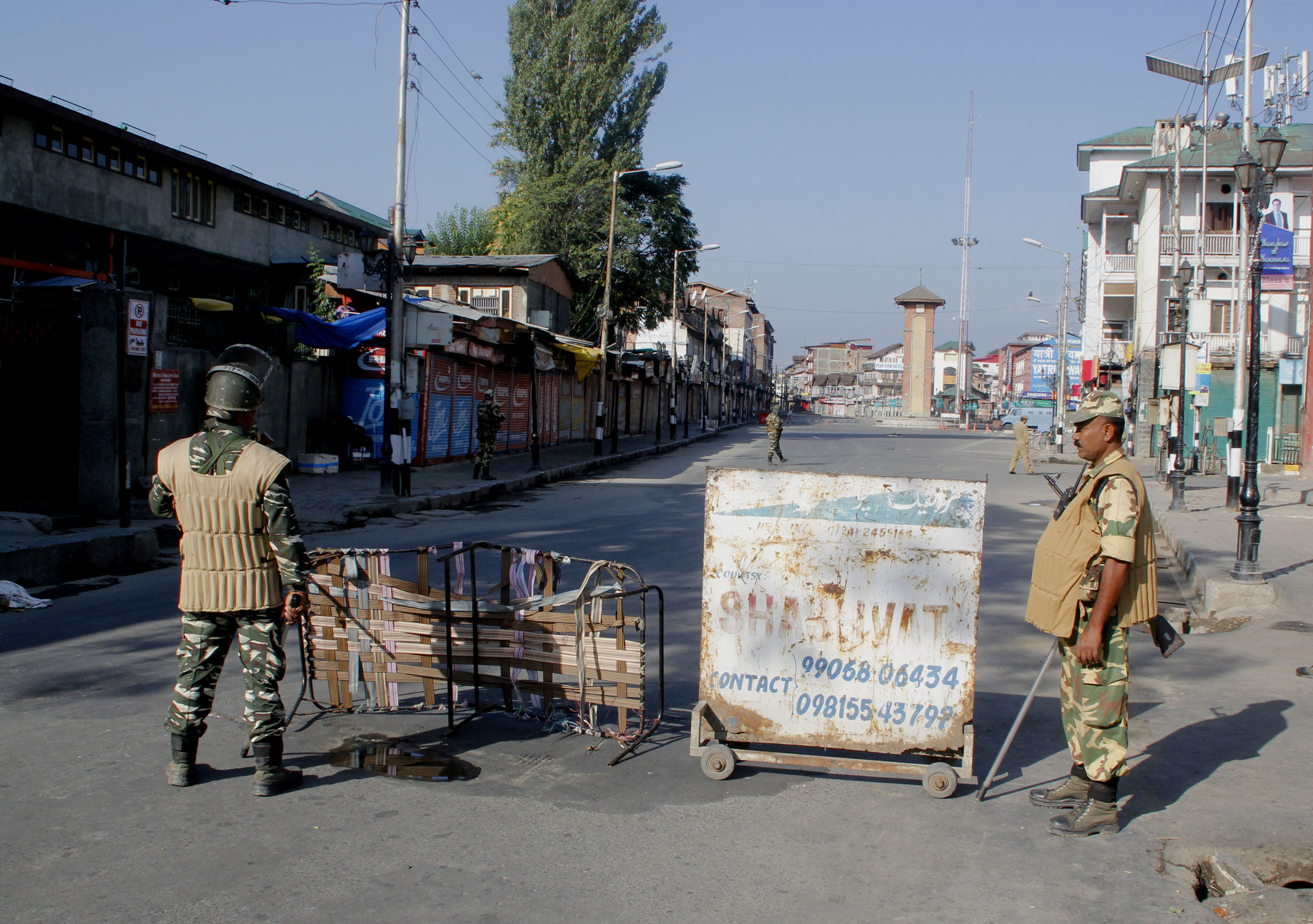Kashmiris Cannot Be Held Hostage to a India-Pak Face-Off, Dialogue Must

NEW DELHI: Kashmir has been in turmoil for the past six weeks. The people in the Valley have been out on the streets in mass protests since the death of Burhan Wani, the Hizbul commander. Sixty five people have died in firing by the security forces and hundreds injured. The latest to be killed was 16 year old Mohd. Yasir Sheikh who was shot by police in Batamaloo area of Srinagar on August 15. Pellet guns used by the security forces have blinded and maimed many. Yet the central government has not taken any step to defuse the situation except to keep sending more contingents of the paramilitary forces to the valley.
After persistent demands from the Opposition in Parliament, the government called an all party meeting on August 12. The Prime Minister’s stance in the meeting is a regressive step back from even what he had stated in the public meeting on August 9 in Madhya Pradesh where he said that the government would follow the approach of Atal Behari Vajpayee of insaniyat, Kashmiriyat and jamooriyat.
Contradictory to this approach, the Prime Minister in the all party meeting “applauded the security personnel for showing restraint in dealing with the current situation in the valley”. This after the inhuman blinding, maiming and killing of scores of young men and women. He declared that Pakistan “is at the root of the current unrest” thereby dismissing outright the spontaneous anger and unrest among the people of the Valley. He warned that “violence, terrorism and anti-India activity would be dealt with sternly”.
The proposals made by the CPI(M) and Left leaders in the meeting for an all party delegation to visit Kashmir and for holding talks with all shades of opinion in Jammu & Kashmir were also not accepted. Briefing the media after the meeting, Finance Minister Arun Jaitley when asked about holding talks with separatists, was non-committal and stated that the government will decide “according to the situation”.
The government has also adopted a belligerent posture with regard to dialogue with Pakistan. Home Minister Rajnath Singh stated in parliament that India is willing to talk only about Pakistan occupied Kashmir with Pakistan and the question about discussions on Jammu and Kashmir does not arise.
The Prime Minister in his Independence day speech did not say a word about the situation in the Valley and the sufferings of the people. Instead he spoke about human rights abuses in Balochistan, Gilgit Baltistan and Pak-occupied Kashmir and claimed that the people living in these areas have been sending messages thanking him. This is a refrain taken up from what he said in the all party meeting about Pakistan having to answer for its atrocities in Balochistan and PoK.
The Modi government has thus signaled that it will treat the popular unrest in Kashmir as a law and order problem. It makes no distinction between the mass of the people and the Pakistan supported militants. It is going back on the terms of the India-Pakistan dialogue decided years ago in which Kashmir was one of the issues to be discussed.
The Modi government has instead of addressing the alienation and demands of the Kashmiri people sought to convert the problem into an India-Pakistan confrontation. By raking up the problem in Balochistan which is an integral part of Pakistan, Prime Minister Narendra Modi has signaled the ratcheting up of tensions with Pakistan. This is the first time an Indian Prime Minister has raised the issue of human rights violations in Balochistan as a counter to Pakistan’s stance on Kashmir. This aggressive posture has been welcomed by the ultra nationalist elements and the hawkish security experts.
It is strange to see the official spokesman of the Congress party endorsing Modi’s stance on Balochistan. The Congress party is also sending out dubious signals on Kashmir. P Chidambaram, a senior Congress leader had made the sensible point that India should honour the grand bargain made with the Kashmiri people at the time of accession in 1948. This entailed giving back the rights that Jammu & Kashmir were promised and restoring the autonomy which was assured to them at the time of accession. The official spokesman of the Congress distanced the party from his views by claiming that it was his personal view.
The stand adopted by the Modi government in dealing with Kashmir will be disastrous for the people of Jammu & Kashmir and for the Indian Union. The national security State and majoritarian outlook of the Modi government has to be resolutely opposed. The democratic and secular forces must demand an immediate end to the regime of repression in Kashmir and the dismantling of the oppressive security apparatus. This must be accompanied by immediate steps to initiate talks with all shades of political spectrum in the state.
The Kashmiri people cannot be held hostage to an India-Pakistan confrontation. Instead of adopting a national chauvinist posture, the Modi government must take up the thread of resuming talks with Pakistan as it was decided by the two countries last year.
Prakash Karat was elected to the Central Committee of the CPI (M) in 1985 and became a member of the PolitBureau in 1992. The Politburo is the key decision making wing of the party. In 2005, he was elected General Secretary.



